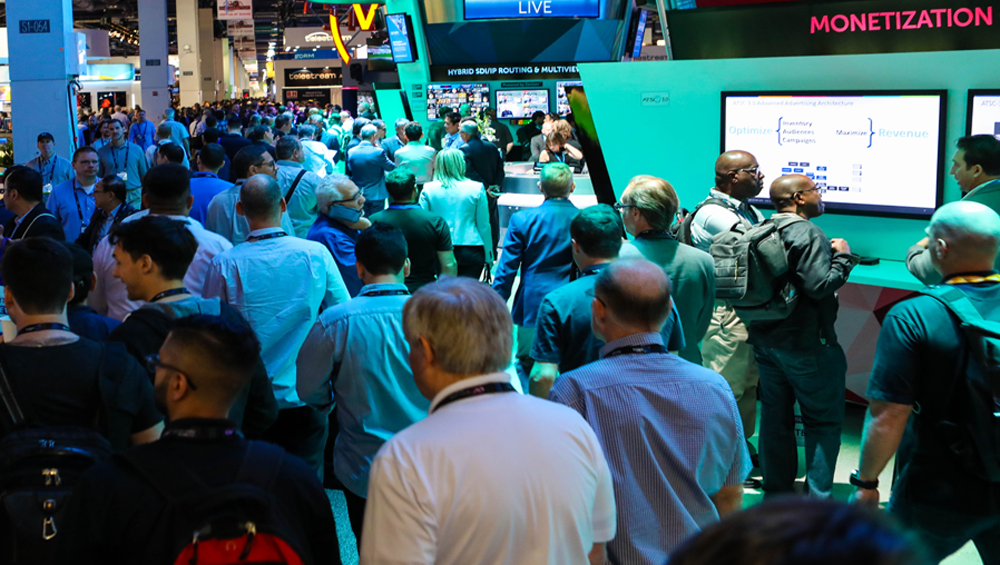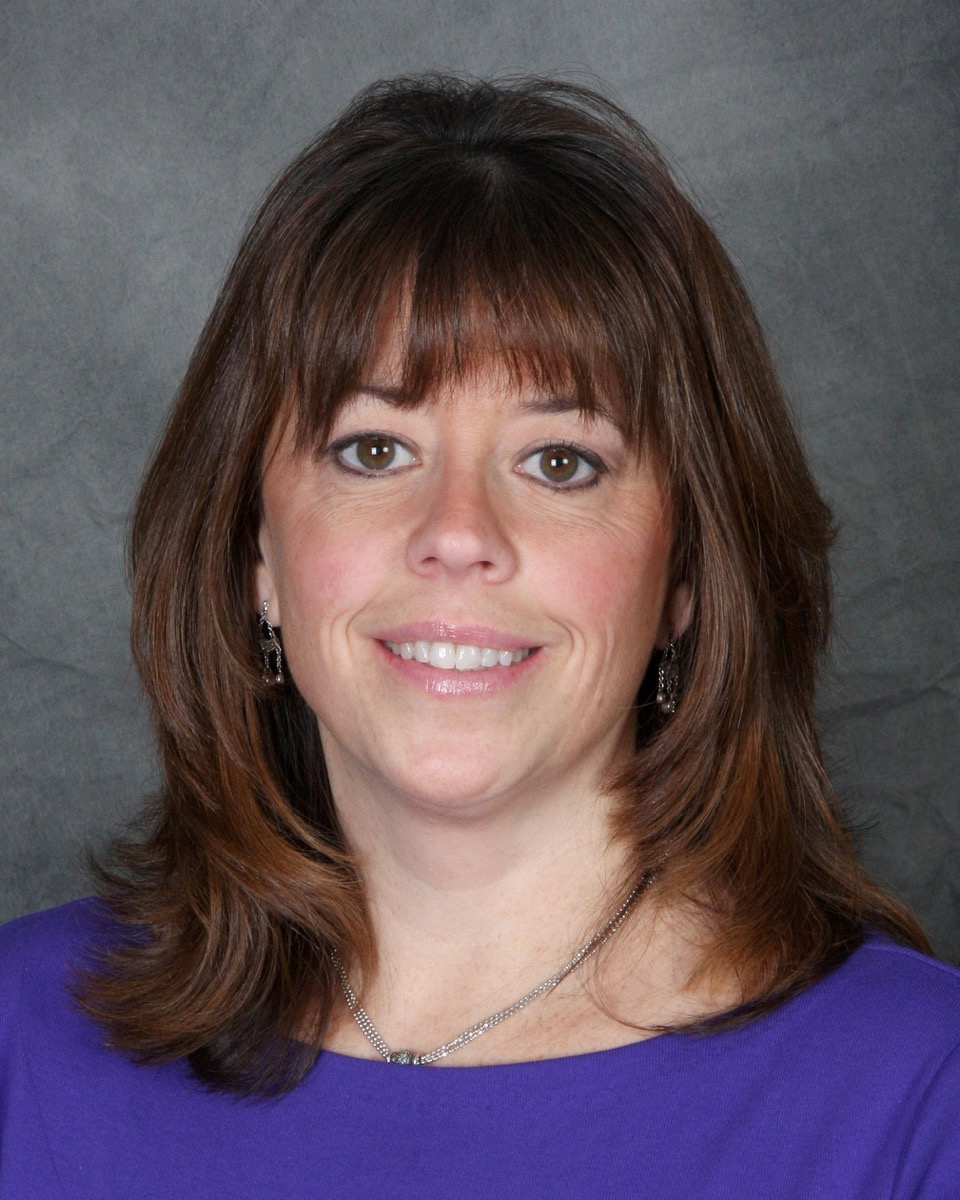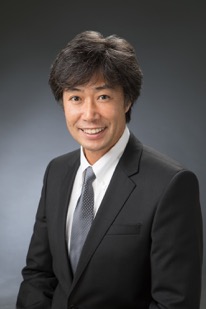
Tech Vendors Wrestle With NAB Void

The National Association of Broadcasters’ cancellation last week of its 2021 NAB Show may not have been surprising, given a rash of post-Labor Day withdrawals from the show by big vendors like Sony, Ross Video, Panasonic and Canon who cited the continued impact of the COVID-19 pandemic.
But coming less than a month before the NAB’s annual conference and exhibition was slated to take place at the Las Vegas Convention Center from Oct. 9-12, the cancellation is another body blow to a media technology industry that was left reeling from a long hiatus in sports and entertainment production in 2020 and is still grappling with supply chain issues in late Q3 2021. Vendors who were looking to make big product announcements at NAB are now scrambling to create a new slate of virtual events, much as they did in March 2020 when NAB 2020 was cancelled, and reassess plans for NAB 2022.
NAB itself will not be putting together a last-minute “virtual NAB” to roughly coincide with the original show dates as it did in April 2020.
“We’re in the process of determining which elements of the show will be offered through NAB Amplify,” says NAB spokesperson Ann Marie Cumming. “We are not producing a full virtual event but instead are shifting our focus to the 2022 NAB Show.”
A Hybridized Future
The scrapping of NAB 2021 also casts doubt on what future editions of the show may look like. Large broadcast vendors were already downsizing their booths before the pandemic, as a steady shift to software-based products reduces the need for floor space for lots of hardware and related demos. Now that videoconferencing and webinars have taken the place of in-person networking for the past year-and-a-half, many vendors expect a hybrid approach going forward that places less emphasis – or at least less investment – on in-person exhibitions.

Neil Maycock
Neil Maycock, CMO & GM Playout for Grass Valley, says that Grass Valley planned smaller booths for both NAB 2021 and the IBC show in Amsterdam this December as the company is focusing more on participating in the show conferences and other “thought-leadership” opportunities. He doesn’t think that Grass Valley and other vendors will ever go back to the giant “product supermarket” booths of the past.
“We absolutely support the shows, and we’re going to be there and we’re going to have a booth,” Maycock says. “But we’re absolutely going to do other stuff, and our booth won’t be quite so big. We’re not going to try to rebuild NBC in our booth. The pivot to software helps a lot. We just need a decent internet connection and a bunch of screens.”
Grass Valley was hoping that the show would go on and was ready with a scaled-down presence, relying on its North American staff from the U.S. and Canada. International travel to the show for execs like Maycock, based in the U.K., had already been ruled out due to U.S. COVID restrictions. Likewise, Grass Valley wasn’t expecting any international customers to attend. But Maycock understands NAB’s decision.
“For most companies, it’s been a really tough 18 months trading, so diminishing ROI, cost, increasing logistical challenges, you start adding all that up and you can understand why people were pulling out,” he says. “I think it’s a combination of factors. And then you get to a point where it’s just not viable for NAB or anybody, so that’s where it got to.
“We were happy to stay in, we felt like they could put on a safe event,” Maycock adds. “And we felt, if there had been 20,000 people turn up, that’s a significant North American trade show [for comparison, NAB 2019 attendance was 91,460]. That was our approach. But not everybody had the luxury of having enough personnel in North America to handle it that way.”
Devoncroft Delayed
Research firm Devoncroft Partners was scheduled to hold its annual conference on Oct. 9 at the LVCC, and Devoncroft founder Joe Zaller says the conference had a “lot of momentum” through August and early September, but was having trouble securing speakers, particularly from the customer side. He said the lack of international attendees and the scheduling of NAB in the middle of several major league sports seasons added to the difficulty, as well as the reluctance of large media companies to send employees to the show. His firm will now look to hold a replacement virtual event in November.
“I think NAB was in a tough spot,” Zaller says. “Anything they were going to do was going to make people unhappy either way. I think they handled it well. Obviously, it’s very painful to them.”
Costs Of A Late Call
Most vendors TVNewsCheck spoke with support NAB’s move to cancel, which the trade organization largely attributed to an unforeseen spike in COVID-19 infections from the Delta variant. But most also said the decision could have been made earlier, which in the case of several companies would have saved them costs in shipping and storing booths that they now won’t use until NAB 2022 in April – assuming that occurs as scheduled.

Per Johansson
“Earlier would have been better, there’s no doubt about it,” says Per Johansson, head of sales, Americas for IP transmission vendor Net Insight. “We had done plenty of planning, so many hours put into it setting up demos. The key thing is we did build a booth, and it was being shipped out of Europe. So now it’s actually in Vegas already, and we’re waiting for NAB 2022 to arrive so we could use that booth.”
Johansson adds that Net Insight, which is headquartered in Sweden, will have “some financial impact” by paying to store that booth stateside between now and April.
Some vendors suggest that NAB could have reassured exhibitors and broadcasters and perhaps avoided the cancellation altogether by asserting early on that vaccinations and masks would be required for all attendees. Instead, NAB waited until August 18th to announce that vaccinations would be required. It was still recommending, but not requiring, masks based on Nevada’s prevailing COVID protocols at the time.

Dave Van Hoy
Dave Van Hoy, president of systems integrator and value-added reseller Advanced Systems Group, LLC, has attended 42 consecutive NABs and is sad to see this year’s show cancelled. Van Hoy hopes the situation will be different in April. But he also hopes NAB will be “a little smarter” about vaccination and mask requirements, particularly in light of recent breakthrough COVID infections in vaccinated adults.
“Had they said from 90 days before the show, or maybe since they announced it, this is going to be the deal, we want everyone to be safe because we want people to come, chances are it might have gone very differently,” Van Hoy says. “Instead, they wishy-washed, and tried to watch the political winds instead of keeping the broadcast community safe. It would have made a big difference. I know it would have for us in planning.”
Uncertain Customer Attendance
Sam Peterson, GM of the Core Business Unit for Bitcentral, says that NAB’s vagueness about show rules caused customers to pull back from the show just as much as vendors.
“They weren’t speaking with a lot of clarity, and that created a lot of uncertainty in the market about ‘whether I’m going to go or I’m not going to go’,” says Peterson, who adds that station group Hearst Television was Bitcentral’s only big broadcast customer who confirmed that they would attend.
“Everyone was really wishy-washy on whether they were going to go or not, and that created concern for us about our return on investment on it,” Peterson says.
Vendors say that some station groups and smaller companies were planning to attend, but that that they were expecting executives from big media conglomerates like NBCUniversal and Disney to be a no-show due to corporate travel policies regarding COVID-19.

John Studdert
“Most certainly, the larger companies were more hesitant, where the groups early on were very anxious to get back to the show,” says John Studdert, VP, U.S. sales and marketing at Sony Electronics. “They gather a lot of information across their entire business at NAB. So, I would say it was a difference. The local stations or groups were planning to go more in force, where the larger media entities were a little more hesitant.”
For its part, Sinclair Broadcast Group was planning to send a fairly large contingent to Vegas, says Deputy CTO Mike Kralec.
“It wasn’t as much about the vendors as it was support for NAB, and how important it was for our industry association,” he says.
Sinclair and other NextGenTV backers, including the Pearl TV consortium, were planning to use NAB to help promote the new standard but will now focus their efforts on the CES show in January, which is going ahead as scheduled.
Compensation Unclear
With the broader industry now focused on NAB 2022 in April, how vendors will be compensated for the money they already spent on the cancelled 2021 show remains unclear. When NAB 2020 was cancelled due to COVID lockdowns across the U.S., vendors were able to get a partial refund or take a credit against most or all of their booth rental fees that could be used for future shows. NAB is currently in the process of figuring out how to handle refunds and rebookings; Maycock says he expected terms would be similar to those offered in 2020.

Theresa Alesso
Bitcentral and Net Insight both say they were presented with an option to withdraw before the show (Aug. 31) and receive a 100% credit toward exhibit space at NAB 2022, while Sony and Grass Valley both say they were not presented with any such date.
Theresa Alesso, pro division president for Sony Electronics, says Sony’s decision to withdraw, made on Sept. 7, was based solely on the health and safety of Sony employees and their customers.
“Our decision was not based on where we could pocket some money and make a savings out of this,” Alesso says.
IBC’s Gains
For the same safety concerns, Sony Europe also doesn’t plan to have a physical booth at the IBC show, currently scheduled for the RAI convention center from Dec. 3-6, though it is planning to meet with customers there. But Grass Valley, Net Insight and Japanese vendor FOR-A all currently plan to attend the show.

Michael Crimp
IBC 2021 got two significant boosts in the last week. First, the Dutch government relaxed most of its COVID-19 restrictions for both international travel and large events, and subsequently the U.S. government announced that its international travel restrictions with Europe, including the need to quarantine upon return to the U.S., would be relaxed in early November.
“That kind of feeling that you can travel to a big international event now exists, and quite frankly that feeling didn’t exist two weeks ago,” says IBC CEO Michael Crimp.
FOR-A America president Satoshi Kanemura says that in-person shows like NAB and IBC are particularly important for small- to mid-sized companies like FOR-A. They can get accidentally discovered on a show floor as people make their way to appointments, but get lost in the shuffle of a large virtual event where customers seek out name brands like Sony and Grass Valley.

Satoshi Kanemura
“We need the customer who just happened to be walking around our booth, and said, ‘Oh, what’s this?’” Kanemura says. “Such an opportunity is important, and that is very difficult to overcome by a virtual event. Happen to have, happen to see, happen to come—that kind of opportunity is important.”
Longing For In-Person Return
Malik Khan, executive chairman and co-founder of IP transmission vendor LTN Global, says that videoconferences and webinars have in some ways allowed his company to service its biggest customers more easily than physical visits. He noted that it’s much easier for a geographically dispersed company to round up 20 staffers on a Zoom call than to fly them all to a central location for a briefing.

Malik Khan
But Khan still sees great value in in-person dialogue and says that recent customer meetings have been more productive than ever, which he attributes to “Zoom fatigue.” He is looking forward to returning to the trade show floor.
“The ability to go have a drink or grab a sandwich with a customer, and ask about their families, I think that’s such an important piece of how you build relationships,” Khan says. “It doesn’t seem appropriate to sit on Zoom and talk about the same things; it doesn’t feel like the right thing to do. I would love to see all of this behind us. I don’t think things ever go back to pre-COVID levels, but I think there is a place and setting for in-person discussions.”
































Comments (1)
Jeff Thorsen says:
December 23, 2021 at 12:35 pm
Thanks!